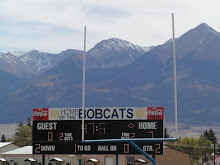
This week United Nations started to squeeze the Iranian Republic just a little more and further increasing the control of President Mahmoud Ahmadinejad over the people of Iran. The reason for the newest wave of sanctions is centered on the disputed Iranian nuclear program and the inability for Iran or its western opponents to come to a consensus. Fiery rhetoric has been the weapon of choice for American politicians towards the defiant Middle Eastern country and most American probably agree that the Iran is a danger to peace. However, only President Obama has briefly hinted that the monster that has become Iran was created by the United States. At some point the U.S. public is going to have to reap what its leaders sowed so many years ago and hopefully it will be a lesson how our empire is almost never a defender of democracy.
The battle for Iranian democracy is one of the most heroic and tragic histories in the 20th century. In 1906 a rebellion outside of the British Embassy was able to persuade the middle and trading class of Tehran to form a Parliament. The aging Shah had tried to stop the constitution rebellion in 1905 but had become sick and was near death when the first Iranian parliament was formed. The parliament moved quickly and modeled their new constitutional monarchy after Belgium. The Shah signed the constitution into law and died five days later. However, the new democracy was short lived and in 1907 exiled royalty swayed the Russian and British Empires to invade and control Iran for its oil reserves. Russian and British control would remain in place until 1950.
Mohammad Mosaddegh was an aristocrat from Iran that passionately opposed the interventions by the Russian and British powers. In 1951 he was elected prime minister by a new Iranian parliament and quickly nationalized the oil industry in Iran. The main reason for British and Russian interventions had been oil and the puppet shah government gave extremely favorable terms to a British oil company that would later become British Petroleum. Mosaddegh wanted to use the oil to increase the Iranian budget to modernize the impoverished nation. When the British government refused to accept the terms of the new Iranian democracy it blockaded oil exports from Iran.
Mosaddegh cut the Shah’s powers drastically and assumed control of the military after a protest in Tehran. However, his democratic actions were being drastically undercut due to the British oil blockade and the country was suffering severe economic depression due to the lack of oil sales. Britain was extremely bitter over their loss of control of the Iran oil industry and the oil blockade was not bringing the crisis to a quick conclusion. The United States had been in favor of Iranian democracy because of Mosaddegh’s open hate of socialism and communism but as Britain became increasingly desperate to regain control of Iran Winston Churchill appealed to the new President of the United States, Dwight D Eisenhower.
Winston Churchill told his old war ally General Eisenhower that Mosaddegh was moving towards communism. Being the height of the cold war that was all the United States needed to reverse its support of Iran and denounced Iran’s policies. The CIA was given almost unlimited monetary backing to bribe the Shah and the Iranian military to create a coup d’etat. The CIA hired criminals and tribal strongmen to stage massive protests in Tehran and over 300 people died in these fake revolts. The bribed military leaders than deployed to ensure peace and arrested Mosaddegh and held him accountable for the revolt. Mosaddegh was found guilty buy the CIA agents and was held under house arrest for the rest of his life. The unpopular and oppressive Shah returned in 1953 and quickly made deals with American and British oil companies with the urging of CIA agents. In trade for almost all of Iran’s oil the CIA funded the Shah’s oppressive military and secret police force. The CIA had single handedly crushed the only democracy in Asia Minor, for oil.
As for the 1979 Iranian revolution we all know about the hostage of the American embassy workers. The new Iranian republic was democratically elected but much more aggressive and radical compared to Mosaddegh. The chance to support a real and peaceful democracy in Iran was supplanted for oil. We now have to face a radical Iranian Republic that hates America more than it hated the Shah and is trying to create nuclear weapons. Who knows how much more peaceful the Middle East could have been if we had supported Mosaddegh?
Americas should be ashamed of our governments dealings with Iran, because like it or not, we gave and continue to give President Mahmoud Ahmadinejad an enemy that threatens the Iranian people which he uses to oppress the people of Iran. Instead of recognizing our mistakes Americans iclaim the reason Iran hates us is because we are a democracy, that Iran hates our freedom, that Iran hates Christians. No, Iran hates us because we killed their democracy single handedly. In part two, I will describe how America helped kill millions of Iranians in retaliation to the 1979 revolution.
Sometimes America makes me sick and I am ashamed to be part of this “great democratic nation.”
Sources:
A Concise history of Iran, Saeed Shirazi
The Devil We Know: Dealing with the New Iranian Superpower, Robert Baer.
Mohammad Mosaddegh and the 1953 coup in Iran, Mark J. Gasiorowski and Malcolm Byrne


